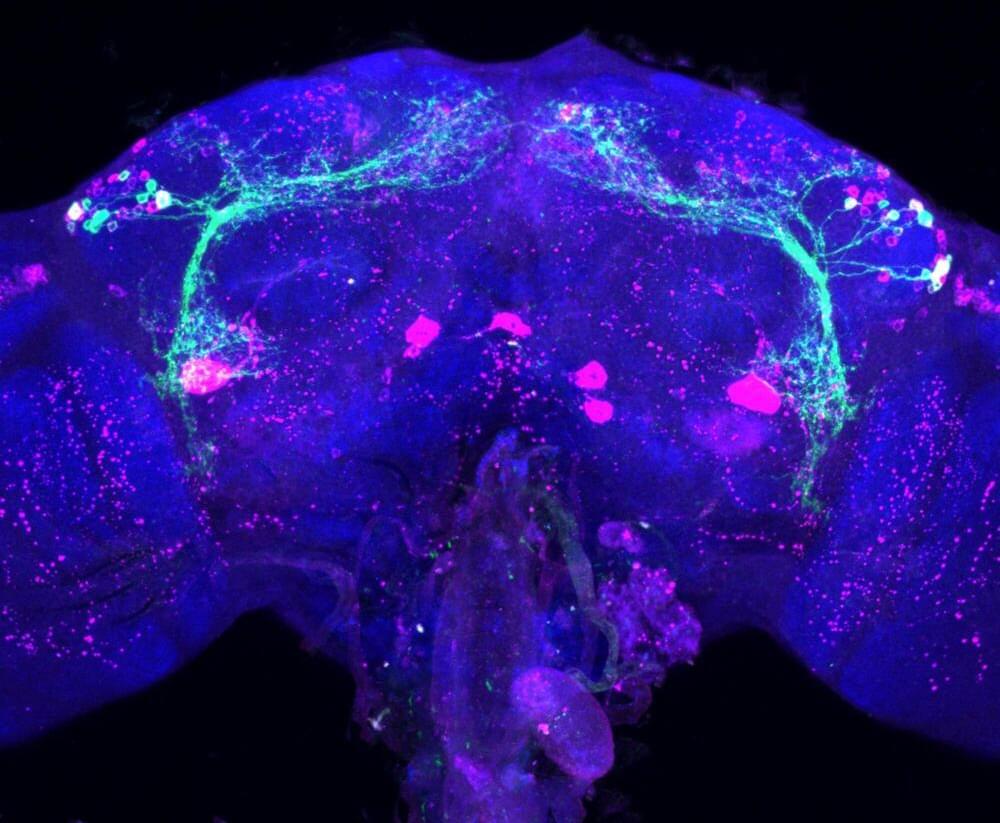Scientists have uncovered a set of neurons in fruit flies that shut down in cold temperatures and slow reproduction, a system conserved in many insects, including mosquitoes, which could provide a target for pest control.
Their study, published Feb. 16 in the journal Current Biology, takes a step toward understanding how a fly’s brain contributes to sensing the cold and limiting reproduction. Insects and animals, including many mammals, curb reproduction in the winter to protect their newborns from being exposed to harsh winter conditions.
The study has public health and agricultural implications, as tapping into environmentally-dependent mechanisms that influence reproduction in mosquitoes and crop pests may offer new control strategies. Mosquitoes act as reservoirs for the malaria-causing Plasmodium falciparum parasite, which spend the winter inside them.
